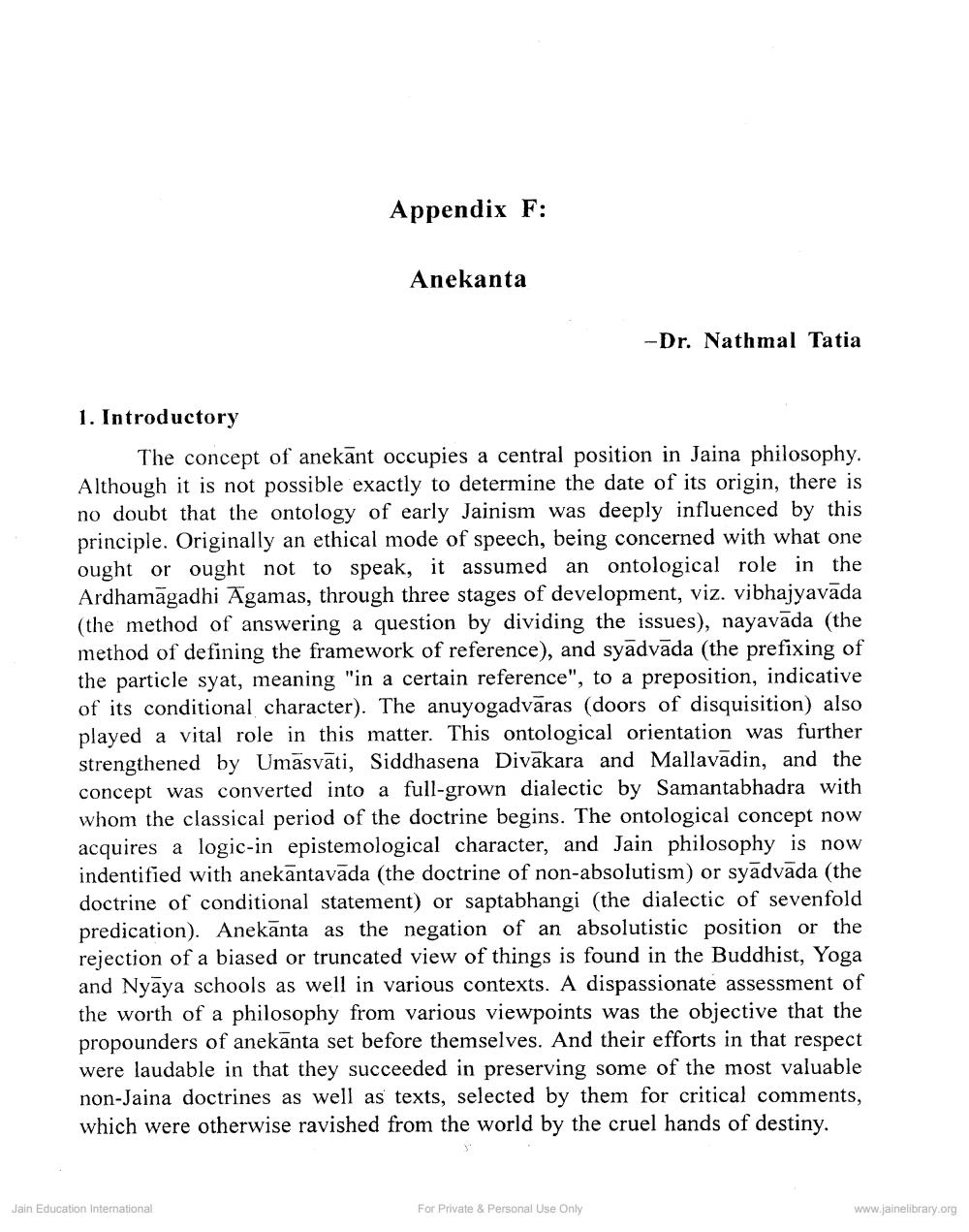________________
Appendix F:
Anekanta
-Dr. Nathmal Tatia
1. Introductory
The concept of anekant occupies a central position in Jaina philosophy. Although it is not possible exactly to determine the date of its origin, there is no doubt that the ontology of early Jainism was deeply influenced by this principle. Originally an ethical mode of speech, being concerned with what one ought or ought not to speak, it assumed an ontological role in the Ardhamāgadhi Agamas, through three stages of development, viz. vibhajyavada (the method of answering a question by dividing the issues), nayavāda (the method of defining the framework of reference), and syadvada (the prefixing of the particle syat, meaning "in a certain reference", to a preposition, indicative of its conditional character). The anuyogadvāras (doors of disquisition) also played a vital role in this matter. This ontological orientation was further strengthened by Umāsvāti, Siddhasena Divakara and Mallavādin, and the concept was converted into a full-grown dialectic by Samantabhadra with whom the classical period of the doctrine begins. The ontological concept now acquires a logic-in epistemological character, and Jain philosophy is now indentified with anekantavada (the doctrine of non-absolutism) or syadvada (the doctrine of conditional statement) or saptabhangi (the dialectic of sevenfold predication). Anekanta as the negation of an absolutistic position or the rejection of a biased or truncated view of things is found in the Buddhist, Yoga and Nyaya schools as well in various contexts. A dispassionate assessment of the worth of a philosophy from various viewpoints was the objective that the propounders of anekānta set before themselves. And their efforts in that respect were laudable in that they succeeded in preserving some of the most valuable non-Jaina doctrines as well as texts, selected by them for critical comments, which were otherwise ravished from the world by the cruel hands of destiny.
Jain Education International
For Private & Personal Use Only
www.jainelibrary.org




